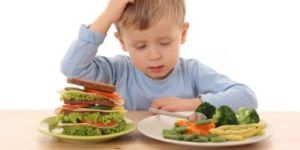Article
Change in Diet Helps Small Percentage of ADHD Kids
Author(s):
Altering the diet of children with attention deficit hyperactivity disorder helps decrease symptoms of hyperactivity and inattention just a small portion of the time, a recent review of controlled scientific studies suggests.

Altering the diet of a child with attention deficit hyperactivity disorder (ADHD) is likely to help decrease symptoms of hyperactivity and inattention just a small portion of the time, a recent review of controlled scientific studies suggests.
“The recent increase of interest in this form of therapy for ADHD, and especially in the use of omega supplements, significance of iron deficiency, and the avoidance of the ‘Western pattern’ diet, make the discussion timely,” wrote the researchers, J. Gordon Millichap, MD, and Michelle M. Yee, CPNP, of Children's Memorial Hospital in Chicago, who performed their review of studies through PubMed searches.
Since some of the studies reviewed found that an altered diet could improve symptoms, while others did not, the researchers concluded that dietary therapy should be used as a last resort in cases where medication and therapy fail to work.
One study by Australian researchers suggested that diets rich in sugary snacks, processed foods, red meat, and high-fat dairy were correlated with higher levels of ADHD. To test this finding, the researchers reviewed the diets used in several recent controlled studies and concluded that, while restricting a child’s intake of sugary substances can help decrease ADHD symptoms, "the majority of controlled studies fail to demonstrate a significant adverse effect of sucrose or aspartame.”
“In practice, additive-free and oligoantigenic/elimination diets are time-consuming and disruptive to the household” and were linked to a successful decrease in ADHD symptoms in only a handful of patients, the researchers wrote.
However, they noted that iron and zinc supplements have the potential to enhance the effectiveness of stimulant therapy and that omega-3 supplements may provide aid to “patients failing to respond or with parents opposed to medication.”
Still, the most “promising and practical complementary or alternative treatment” for ADHD could be “a greater attention to the education of parents and children in a healthy dietary pattern,” they conclude in the review’s abstract.
The review was published online today in Pediatrics.





